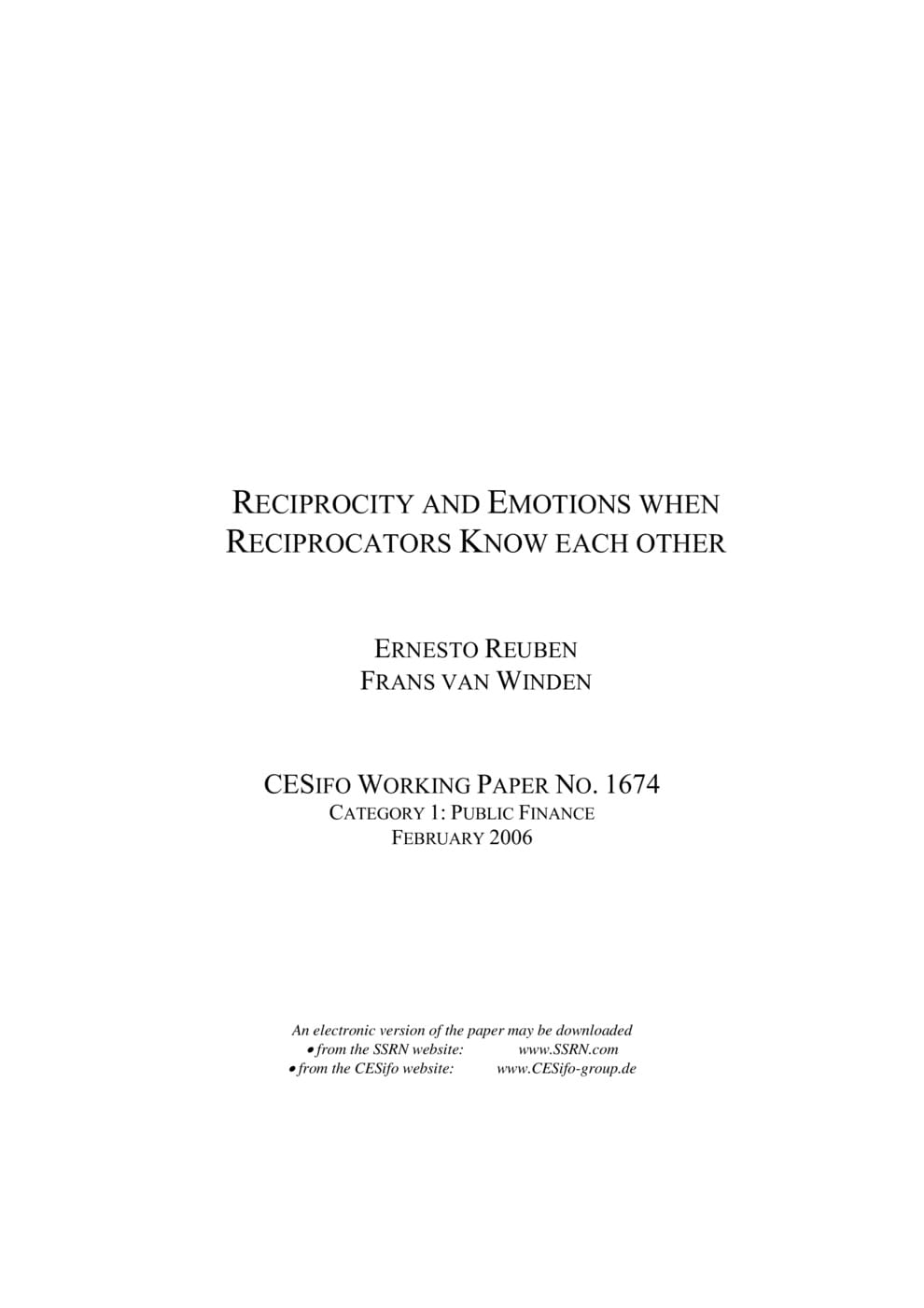Reciprocity and Emotions when Reciprocators Know each other
CESifo, Munich, 2006
CESifo Working Paper No. 1674

This is an experimental study of a three-player power-to-take game where a take authority is matched with two responders. The game consists of two stages. In the first stage, the take authority decides how much of the endowment of each responder that is left after the second stage will be transferred to the take authority (the so-called take rate). In the second stage, each responder can react by destroying any part of his or her own endowment. Two treatments are considered: one in which all players are ‘strangers’ to each other (random matching), and one in which the responders know each other from outside the lab and are more or less close ‘friends’ (whereas the take-authority is again randomly selected). We focus on how the intensity of ties between responders impacts the decisions, beliefs, and emotions of both the responders and the take-authority. Some of our findings are: (1) although take rates are about the same, friends destroy more than strangers when faced with high take rates; (2) coordination on the same destruction level is stronger among friends; (3) the high level of coordination among friends can be explained by their emotional reaction towards one another; (4) the difference between the actual and expected take rate is a much better predictor of experienced emotions and destruction than the difference between the actual and (what is considered as) the fair take rate.